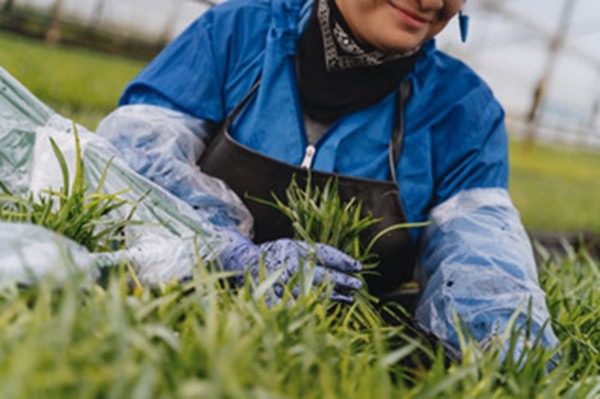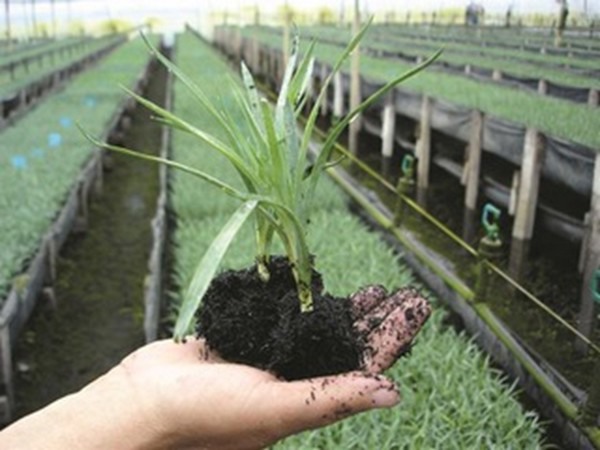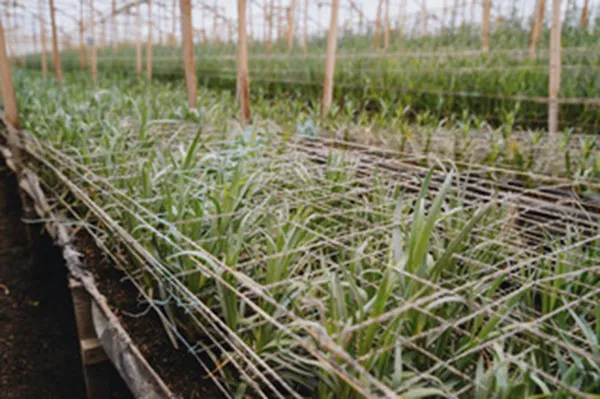The market for carnations grew during the pandemic, and it is still going strong, says Andres Toro of Colibri Flowers. This Colombian farm grows carnations and spray carnations since 1987 and is expanding year after year. They currently have 6 farms with 1,350 workers and are not only expanding one of their farms but their whole operation. April is their most important month of the year, and despite the challenges, they are pleased with the year so far.

'Carnation specialists'
Growing carnations and spray carnations for more than 36 years, they consider themselves 'carnation specialists.' "We are the largest exporter of flowers to Japan from Colombia, but we also provide flowers to Holland, Poland, UK, Korea, Taiwan, Austria, Germany, Canada, Spain, and other countries. We work very closely with the best breeders, testing new varieties all the time. Right now, we grow over 70 different varieties in our program, but every year we test many more to see if they are worth introducing them." Today they have 6 farms this year, they are expanding; 7 additional new hectares of carnations and spray carnations in their newest farm called "El Porvenir." But they are investing in expanding their whole operation. "In addition to the 7 new hectares for this year, we also have to increase our logistics, post-harvesting, and sales capacity."

Trendy again
How did the market for carnations develop over the last years? Toro: "The market grew during the Covid-19 pandemic, and it is still going strong for carnations. In recent years, carnations have made a comeback, being seen as trendy again! Many designers are using them for bouquets and wedding arrangements, in addition to the traditional everyday uses."
For Colibri Flowers, Valentine's was as expected. It is not our biggest holiday. On the other hand, Mother's Day is bigger for them, and it has been going very well. "For us, the month of April (pre–Mother's Day) is our biggest holiday in the year."

Challenges
The challenges they are facing are hiring, training, and retaining highly motivated people, he explains. "This is a people business, and we are as good as our team is. Since we are expanding, we want to continue bringing in good and happy workers into our organization."

Sustainability goals
At Colibri Flowers, they are also working hard to reduce their impact on the environment. "Over time, we have implemented the use of biological fungi in our production process. These biocontrol fungi allow for responsible pest management and allow us to reduce the consumption of agrochemicals. A source of pride is the expansion of our production plant, which will supply all our current and future crops."
They are also certified in ISO 14001. "We were the first and only flower company in Colombia to receive this certification. We are proud to have the benefit of solar energy in two of our farms, with plans on expanding our capacity soon. Conscious of water as a precious resource, we channel rainwater into reservoirs on our different farms, which allows us to reduce our use of local water sources by almost 50%." On top of that, they are also certified by Ethical Trading Initiative (ETI) and BASC (Business Alliance for Secure Commerce). "And this year, they are also planning on being certified in Global Gap."
For more information:
Colibri Flowers
www.colibriflowers.com
